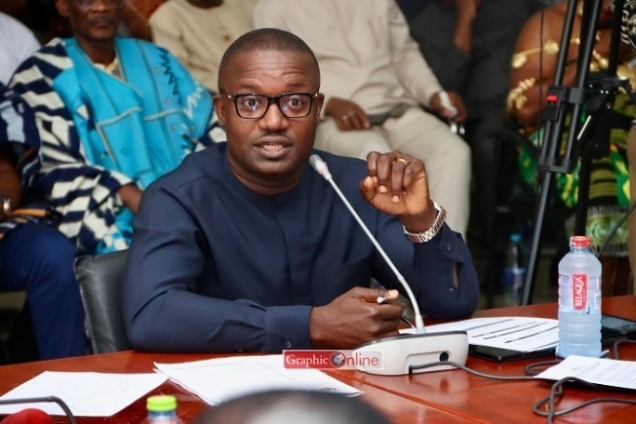Springfield takeover to depend on independent valuation to ascertain commercial viability– Energy Minister
 John Abdulai Jinapor
John Abdulai Jinapor
The Minister for Energy and Green Transition, John Jinapor, says government backing for a potential state-led takeover of Springfield Exploration and Production Limited’s (SEP) stake in the West Cape Three Points Block 2 (WCTP2) will hinge on an independent, transparent valuation proving the asset’s commercial viability.
Speaking on the Super Morning Show, Mr. Jinapor confirmed that Springfield had approached the government, the Ghana National Petroleum Corporation (GNPC) and its subsidiary, Explorco, for support as part of ongoing engagements over the struggling oil block.
He emphasised that any government decision would be guided strictly by objective technical and commercial assessments.
“Springfield is a Ghanaian company. They’ve invested so much,” he said. “Where they have gotten to, they think they will need some support.
As minister, what I will do is that I want an independent, fair valuation of that field.”
According to him, both the technical analysis and commercial valuation of the asset will determine whether it merits state participation.
He noted that if the evaluation confirms strong potential—especially given that the WCTP2 block has already passed through the high-risk exploration phase—the government will be prepared to offer the necessary support.
“If it proves that the field holds huge potential, we would engage Springfield and give them whatever support is required,” he stated.
However, Mr. Jinapor was equally clear that the government would withdraw interest if the findings did not justify further investment.
“If it does not meet the criteria, forget about it,” he stressed.
The minister’s comments come as the government explores strategies to revive declining petroleum output, with production continuing to fall in fields such as Jubilee and TEN.
The move to reassess and potentially support struggling assets is part of broader efforts to sustain national oil production and protect the value of Ghana’s petroleum resources.
Source: Classfmonline.com/Cecil Mensah
Trending News

New presidential jets will cost less than Akufo-Addo’s rentals — Deputy Finance Minister
09:23
NPP executives abroad petition party for approval of proxy voting in presidential primary
02:13
Ashanti Regional Minister demands retraction over “baseless” illegal mining allegation
03:29
Interior Minister launches new insurance scheme for fire officers
11:40
NPP primary: Bawumia begins Central Region campaign today
09:04
Yirimambo Advocacy Group warns of looming aviation disaster at Upper West airport amid rising encroachment
13:05
Over 19,000 people living with HIV in Bono Region as new infections surge — GAC warns
08:35
Lands Ministry confirms death of NAiMOS taskforce member in Obuasi accident
01:56
MP calls for emergency national programme to tackle galamsey
03:20
Awutu Senya East NHIA, Kasoa Market Queen Mother launch “My Health, My Wealth” initiative
10:42




